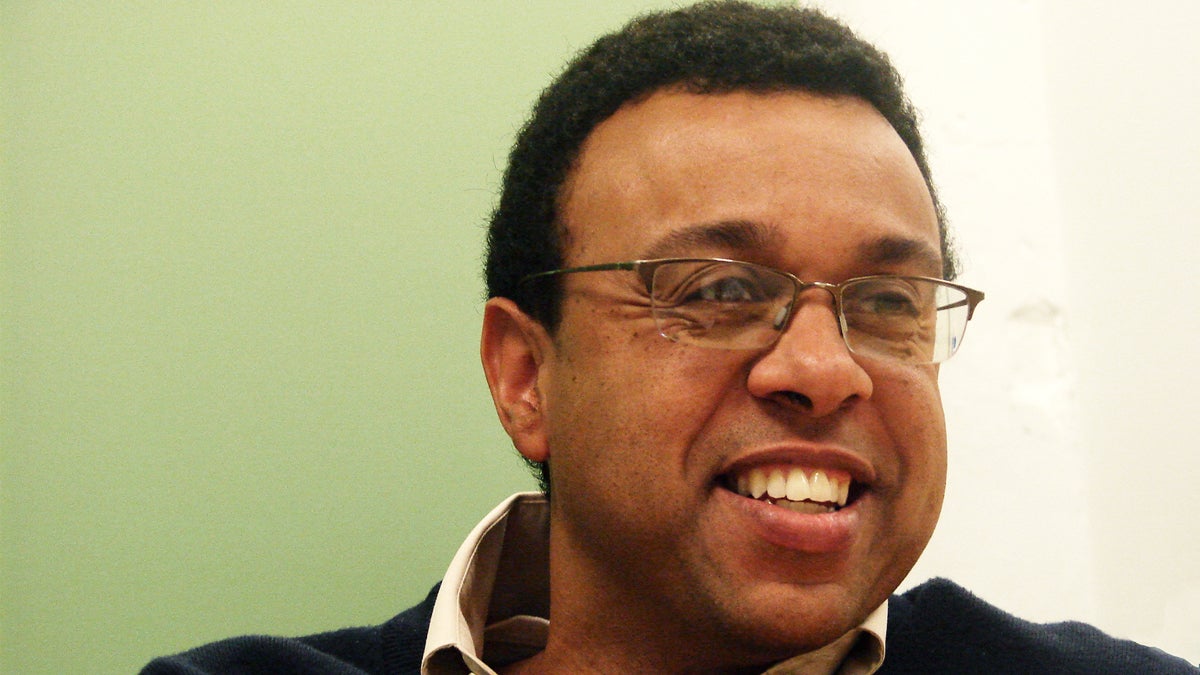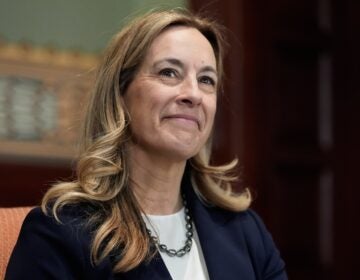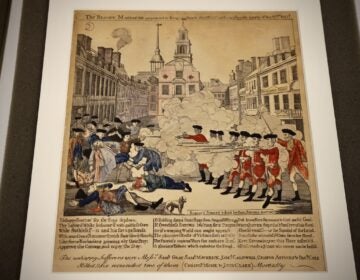Rutgers-Camden Chancellor Wendell Pritchett announces resignation

Wendell Pritchett. (NewsWorks photo, file)
Wendell Pritchett, the first African-American chancellor of Rutgers University-Camden and the first university leader to speak out publicly last year against a failed proposal to merge the campus with Rowan University, has announced his resignation, effective July 1, 2014.
In a letter to the campus community yesterday morning, the popular administrator said he believes the state of the campus to be “extremely strong” — a condition that makes the end of the school year the right time to “turn over the reins.”
Since assuming his role in 2009, Pritchett has overseen a period of immense growth on campus — graduating a record-breaking number of students, including the school’s first Ph.D. candidates; hiring three dozen new faculty members; establishing an Office of Community Relations; and overseeing numerous capital projects from the construction of a new dormitory and Nursing and Science Building to the creation of a Writers’ House and an Alumni House and the renovation of the Paul Robeson Library. Noting that public-university chancellors typically hold the position no longer than six years, he joked, “I am certain that at the end of this year we will all agree that we’ve done seven or eight years’ worth of work during my term.”
The 49-year-old attorney who received his education at Brown University, Yale Law School, and the University of Pennsylvania will join the Rutgers-Camden faculty as a professor of law and history. In a statement, university president Robert Barchi said he accepted Pritchett’s resignation reluctantly and will launch a national search for his replacement. Barchi also commended Pritchett for what may become his most lasting legacy: early and forceful opposition to ultimately unsuccessful merger efforts presented by Gov. Chris Christie and several high-ranking state lawmakers.
“He led a broad and passionate coalition of Rutgers-Camden students, faculty, staff, alumni, and friends . . . His leadership was critical to ensuring that Rutgers will continue to have a statewide presence,” Barchi wrote.
History Professor Andrew Shankman, who helped spearhead the Committee to Save Rutgers-Camden, added in an email, “His brave stance . . . forced the rest of the Rutgers leadership to recognize how vital the Camden campus was to Rutgers. The people of South Jersey would not have the convenient and essential access to a Rutgers education that they have today if not for Wendell Pritchett.”
Shankman says he doesn’t believe there’s much beyond Pritchett’s resignation than the reasons given, though he suspects he has grown tired of playing politics. Pritchett wrote in his campus-wide letter, “As you know, the past few years have been tumultuous for the campus,” to which Shankman responded, “Chancellor Wendell has had to navigate between an administration in New Brunswick and a political class in Trenton that both do far more talking than they do listening. It’s a shame because he is a man of the deepest integrity and is the most visionary and talented administrator in the Rutgers system.”
Jonathan Latko, president of the Cooper Grant Neighborhood Association, which oversees affairs in the student-filled residential neighborhood adjacent to campus, remarked that although Pritchett continually proved himself to be an extremely accessible, concerned, and cooperative neighbor, his direct community involvement seemed to wane over the past year.
“From the beginning, Wendell green-lighted a lot of projects for us and was absolutely the right guy for the right time,” Latko said. “You just wouldn’t really see him out in public much anymore. It was like he’d grown a little bit distant.”
Pritchett, who lives in the University City district of Philadelphia with his wife and two children, is heavily committed to civil engagements outside Rutgers. The former associate law dean at the University of Pennsylvania currently serves as president of the Coalition of Urban and Metropolitan Universities, commissioner of the Philadelphia School Reform Commission, and co-chair of the Economy League of Greater Philadelphia/World Class Greater Philadelphia initiative. He also sits on boards for the Select Greater Philadelphia/CEO Council for Growth initiative and Cooper University Health Care in Camden. He has written two books on urban policy, served under Philadelphia Mayor Michael Nutter as policy director and deputy chief of staff, and chaired the Urban Policy Task Force for Barack Obama’s presidential campaign in 2007.
“He’s putting a lot of his academic credentials to work in Camden,” said Rutgers-Camden professor emeritus Howard Gillette, who wrote the landmark urban studies textbook, “Camden After the Fall.”
“Wendell’s priority was to make campus a central resource to the city . . . He’s worked with a number of different community organizations who are welcome on the campus more than ever before, he added.”
Indeed, many lament that Pritchett’s nationally recognized leadership and expertise in urban policy will be what the community misses most about him.
“He’s a collaborative person. He thinks beyond just his institution. He thinks more globally about how people can work with one another for the greater good,” said The Cooper Health System President and CEO John Sheridan, who partners with Pritchett on the Camden Higher Education and Healthcare Task Force, as well as other downtown Camden initiatives.
“He’s developing a strong relationship with the City of Camden and helping the entire community understand the importance of Rutgers to the community,” said James Rhodes, a Camden County administrator, Rutgers trustee, and former head of the university and Camden campus alumni associations. “He’s led collaborations not only with public and private institutions in the city but with our fellow academic institutions in the region.”
As he serves out the remaining year of his contract, Pritchett pledges to focus on improving academic life on campus: strengthening advising and support programs and collaborating with faculty to strengthen curricula.
__________________________________________________________
NJ Spotlight, an independent online news service on issues critical to New Jersey, makes its in-depth reporting available to NewsWorks.
WHYY is your source for fact-based, in-depth journalism and information. As a nonprofit organization, we rely on financial support from readers like you. Please give today.




